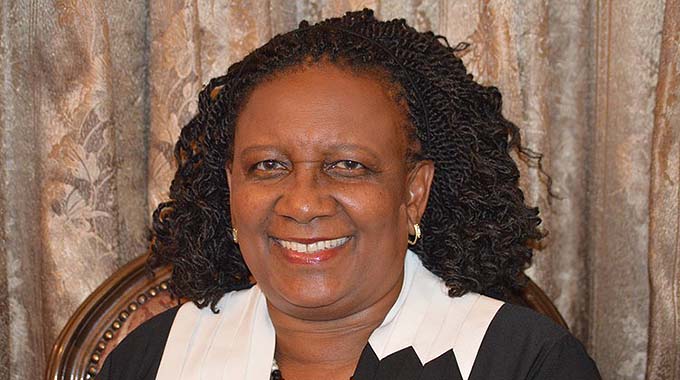Of elections, manifestos and electoral promises

Nobleman Runyanga Correspondent
With each passing day, July 30 is drawing closer and the political players who intend to participate in the forthcoming elections are hanging themselves out on the clothesline of politics.
Some hope to attract the electorate, while others dry themselves into oblivion, only to reincarnate after a five-year hibernation period.
Someone described the pre-election period as the silly season and most aptly so too if some of the electoral promises being bandied about copiously are anything to go by.
Some of the promises betray a lack of understanding of the electorate’s needs, which is born of the absentee politician syndrome. To some politicians, the election season presents a chance to make money from gullible foreign donors wishing to influence the course of local events through opposition parties, some of which are obscure and virtually unknown to the electorate.
To other politicians, it is a matter of seeking social relevance by pursuing political endeavours using the opportunity afforded by the five yearly elections.
Although the election is usually a very emotive period, the current season has not been without its moments of mirth.
For example, on Thursday last week, the electorate woke up to amazing amusement when the media reported that the New Patriotic Front (NPF) leader and presidential candidate, Tendai Munyanduri had promised to deliver a literal Canaan to Zimbabweans by ensuring “at least an egg, bacon and milk for every breakfast” if voted into power. While there is nothing wrong with aspiring for such a high standard of living, it indicates that the party does not know that top on the electorate’s needs is not diet, but service delivery, economic recovery, jobs and availability of cash in banks among others.
This indicates that the party does not have a connection with the grassroots members of the electorate and, therefore, is patently not familiar with their anxieties and concerns. Such a promise also indicates a lack of understanding of the mechanics of achieving such a standard of living. The NPF is not alone in this display of ignorance of basic facts on the ground.
In a section on Bond notes on page 14, the Alliance for the People’s Agenda (APA) manifesto claims that the local industry is so decimated that there are “no more pots from Kango, or shoes from Bata or GND (sic), no more David Whitehead blankets, or ZEC radios (being) exported to the world or Olivine cooking (oil).”
For the record, Tregers, which manufactures the Kango enamelware brand, is operational and Bata Shoe Company is also operational and is, in fact, increasing its national footprint by opening new stores following years of competition from cheap Chinese imports. David Whitehead has been known for textiles and not blankets, although at some point shared the same holding company, Lonrho Zimbabwe, with the blanket manufacturer National Blankets.
Olivine Industries was recently recapitalised and its margarine factory re-tooled.
Most of its flagship brands such as Olivine cooking oil, Jade bath soap, Buttercup margarine, Perfection and Dolphin laundry soap bars are back on shop shelves.
Another trend, which is sticking out like a sore thumb among some of the manifestos and promises released so far is the penchant for setting up parastatals, commissions and other forms of Government bodies at a time that it is evident the country could do with way less of such bodies as part of a raft of initiatives to turn around the economy and improve people’s livelihoods. This is the reason why Government has already announced its intention to deal with poorly performing state enterprises through disposal or mergers.
In its manifesto, the MDC Alliance, despite emphasising on the need for a leaner administration, advocates for a host of new Government bodies such as the Financial Affairs Regulatory Authority and the Consultative Development Council (CDC) among others.
Put differently, if it lands power, the alliance intends to take away with the left hand the benefits of the savings made by the right hand through proposing a lean administrative structure.
APA, in its manifesto, also proposes a number a number of commissions, which include a Special Commission on Education despite the fact that the recommendations of the Nziramasanga Report on education of 1999 is yet to be fully implemented. One would have thought that by waiting for ZANU-PF to release its manifesto first, the opposition would come up with unique documents, which would address other areas which were not tackled by the ruling party.
It seems most of them are just harping on either what has already been handled by ZANU-PF or was already addressing on the ground as ongoing projects and programmes. The naming of the MDC Alliance’s manifesto, which is dubbed “Sustainable and Modernisation Agenda for Real Transformation” (SMART), was obviously influenced by the Zimbabwe Agenda for Sustainable Socio-economic Transformation (ZIM-ASSET), which undergirded ZANU PF’s 2013 election manifesto.
With such political parties, which lack originality and the basic appreciation of the electorate’s needs, one is persuaded to conclude that they are merely participating to fulfil the election fixture and are not convinced of any meaningful wins.
This is because some of them spend most of their time in Western capitals instead of constituencies establishing the people’s needs and tailor-making projects and programmes to address them as does ZANU PF.









Comments